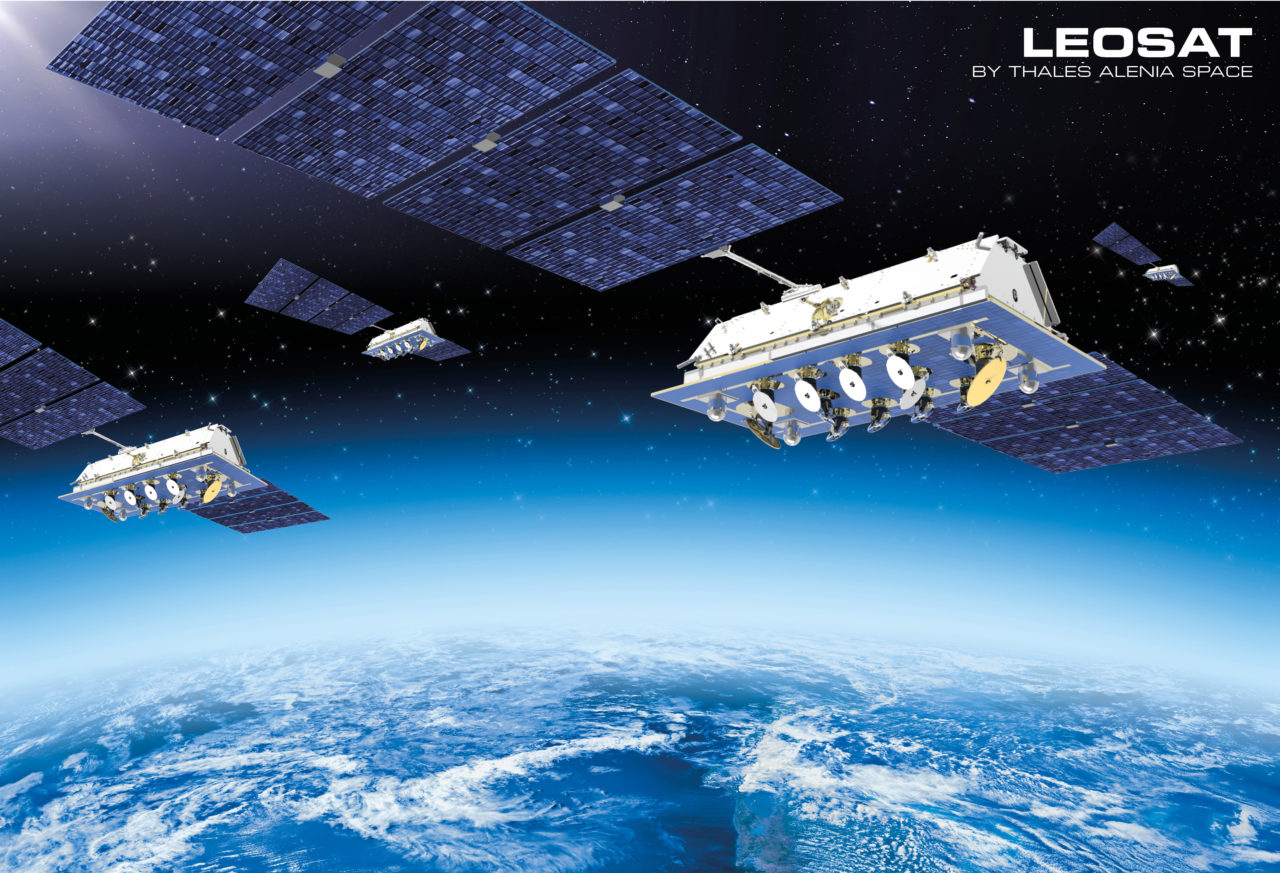Latest News

Rendition of LeoSat constellation. Photo: LeoSat.
LeoSat plans to leverage its strategic partnership with Sky Perfect JSAT to break into the wider Asian market, according to LeoSat CEO Mark Rigolle. In an interview with Via Satellite, Rigolle noted his optimism that JSAT will offer LeoSat’s products, alongside the existing capacity the Japanese company already sells, as “there are certain customer applications you simply cannot do from Geosynchronous Orbit (GEO),” he said.
Rigolle drew a comparison between JSAT, which announced its investment in LeoSat last week, and other major satellite operators that have also begun to express interest in new Low and Medium Earth Orbit (LEO, MEO) projects. He believes companies such as SES, for example, which acquired O3b Networks last year, are quickly realizing the importance of diversifying their services to keep up with customer demands.
“Given all these LEO projects, and given the negative growth in many of the traditional vertical markets GEO serves, people have this kind of existential angst. All the Chief Strategy Officers (CSOs) and CEOs are thinking, ‘Our bread and butter business is going down the drain, so what’s the new thing?’” Rigolle said. As a result, he said, Fixed Satellite Service (FSS) operators such as JSAT are now more receptive to new ideas than they might have been a few years ago.

Mark Rigolle, LeoSat CEO. Photo: LeoSat.
“On the data side of the business, they’re not talking about GEO or MEO anymore,” Rigolle said. Instead, focus has shifted to maintaining customer relationships through whatever technology is available and effective, whether that’s wide-beam GEO, high-throughput GEO, or LEO/MEO capacity. “I think the same will increasingly happen with other satellite operators who want to remain competitive in the data business. They’ll need to have a menu of solutions to problems customers are facing, and if that menu is limited to only GEO, then they’re only going to be able to solve part of people’s problems, which makes it a difficult proposition to sell anything at all,” he said.
This comes as good news for LeoSat, which has been operating on what Rigolle called a “shoestring budget” as it has attempted to convince potential investors to take the plunge. Rigolle believes JSAT’s investment combined with its credibility as an anchor shareholder will inspire more investors to back the company’s constellation plans. “We’ve got quite a few investors on the fence, and everybody’s looking at people to the left and right of them [to see] who’s going to jump first into the unknown and put some money on the line,” he explained. “It totally reinvigorates our discussion with certain people.”
Although he was unable to disclose the specific amount JSAT invested, Rigolle said LeoSat will use the funds to move forward with the deployment of its constellation. As proof of concept, the company first plans to launch two “early bird” satellites to test critical components, including the on-board processor and the optical intersatellite links themselves. “Those we will launch in 2019,” he said. “Depending on the timing of the $100 million Series A round, which we hope to close in Q3/Q4 of this year, we should then be in a position to start launching in early 2021. Depending again on launch availability, the idea is to get the full constellation up by late 2022.”
In a shift in strategy from other LEO operators, LeoSat does not plan to provide internet connectivity to regular consumers. “The strategic positioning of this company is purely Business-to-Business (B2B). We’re going after big banks, multinational [corporations], government agencies and the like, who need to transport securely large amounts of data from multiple points to multiple other points,” Rigolle said. “We think that this network can be infinitely profitable and successful with 3,000 or 4,000 customers.”
As far as LeoSat’s market distribution model, Rigolle emphasized a distaste for vertical integration. “We are convinced that companies with a product or service that is diversified from anything else don’t need or want to vertically integrate. You will always have a conflict with someone in your distribution channel,” he explained. “We think we can enable value-added resellers to create a profitable business for themselves doing what they do best.”
So far, LeoSat has already confirmed one take-or-pay contract, and Rigolle said the company signed a handful of Memoranda of Understanding (MoU) as well, which have the potential to become contracts once the LeoSat’s plans materialize further. Overall, the JSAT investment has added a new degree of confidence for the young company, and Rigolle said he is looking forward to the possibilities unlocked by the partnership. “The word that comes to mind is exhilarated,” he said.
Get the latest Via Satellite news!
Subscribe Now